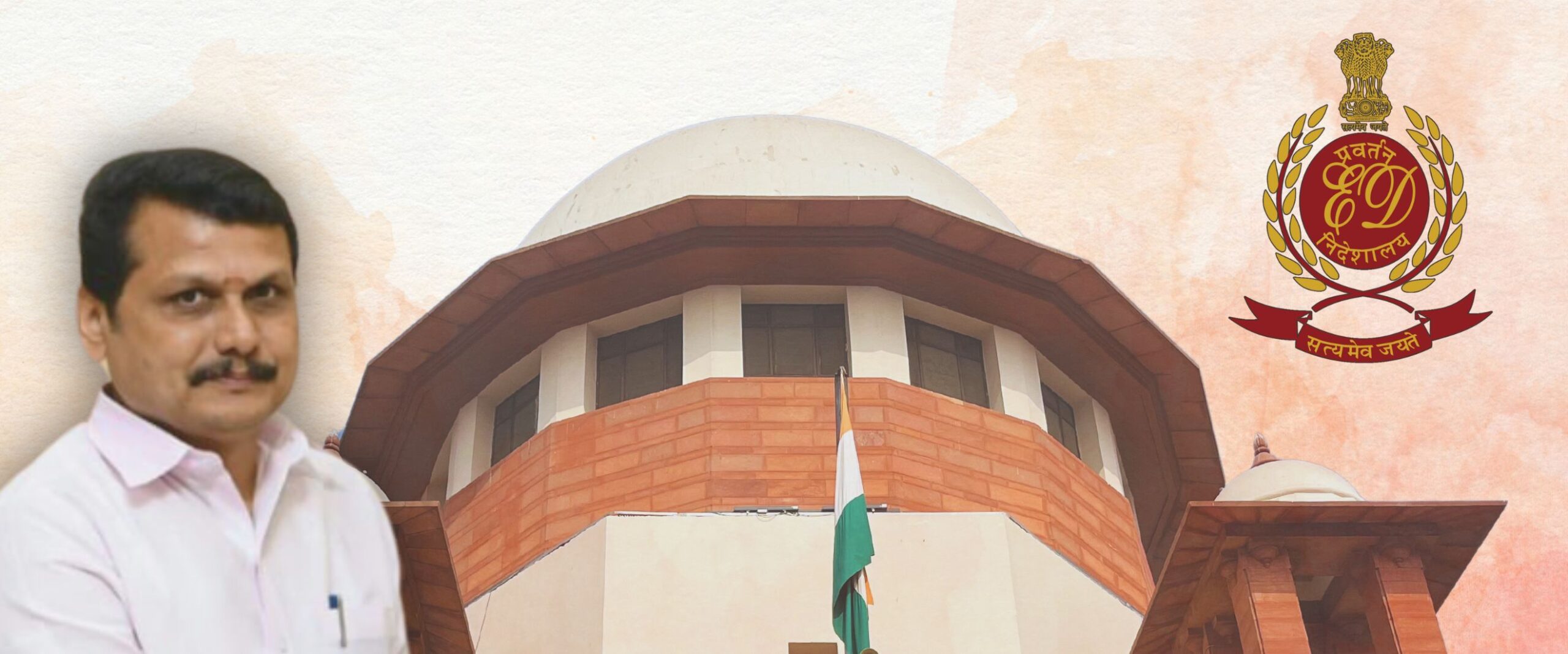Analysis
Bail for the minister
The outcome in a petition seeking cancellation of DMK minister Senthil Balaji’s bail could shape the NDA’s PMLA strategy in its third term

Earlier this week, Justice A.S. Oka expressed disapproval against the reinstatement of DMK leader Senthil Balaji in the Tamil Nadu cabinet, just days after he was granted bail in September 2024. Justice Oka said: “What is this? There are serious charges against him, and he straightaway becomes a Minister! This must stop…”
Balaji is accused in a cash-for-jobs scam that is alleged to have occurred during his tenure as transport minister when he was part of the AIADMK. After his re-induction, an intervenor petitioned the Supreme Court to recall the bail, arguing that Balaji’s position could deter witnesses from testifying. The petitioner also highlighted that Balaji had portrayed himself as a ‘private citizen’ during his bail hearing.
Following Justice Oka’s remarks, the BJP wing in TN demanded Balaji’s removal from the cabinet. Balaji’s case is part of a long list of matters in which Opposition leaders of various stripes are in the dock under the Prevention of Money Laundering Act (PMLA). This year alone, the Supreme Court has heard cases relating to the bails of Arvind Kejriwal (Aam Aadmi Party), Manish Sisodia (AAP), Hemant Soren (Jharkhand Mukti Morcha), K. Kavitha (Bharat Rashtra Samithi) and Balaji.
The numbers are revealing. An investigation by The Indian Express reported that, as of September 2022, 95 percent of the 121 Enforcement Directorate-led cases against politicians since the National Democratic Alliance came to power in 2014 involved Opposition leaders. In the UPA era (2004-2014), only 26 political leaders were probed by the ED—54 percent of them were from the Opposition.
Earlier this year, the Minister of State of Home Affairs told the Lok Sabha that 5,297 PMLA cases were registered between 2014 to 2024. Out of this, 84 percent of cases were registered in the second term of the NDA government (2019-2024). What caused this increase? One reason is the amendments to the PMLA in 2018, which reintroduced the stringent bail provisions that were struck down by the Supreme Court in 2017. The amended provisions were upheld by the Court in 2022, calling it a ‘heinous crime’ and raising the threshold for granting bail.
In the Supreme Court, Opposition leaders have argued that the PMLA is being weaponised against them to stifle electoral prospects. In what seemed to be an effort to bypass the bail conditions, Kejriwal avoided seeking bail under Section 45 in the Supreme Court and instead challenged the validity of his arrest under Section 19. In his case, the Court also directed that he cannot discharge his duties as Chief Minister as a condition of bail. Kejriwal resigned from the post soon after he was released. Hemant Soren had a different strategy. He resigned as Chief Minister of Jharkhand just before his arrest and took on the mantle again after being granted bail by the Jharkhand High Court.
Balaji’s case reflects a blend of Soren’s and Kejriwal’s circumstances. Unlike Soren, Balaji retained his cabinet ministerial position for eight months after his arrest, resigning only a day before his bail hearing in the Madras High Court. He rejoined the cabinet shortly after securing bail in the Supreme Court. In Balaji’s case, the Bench explicitly warned that his bail could be revoked if he sought to influence witnesses.
Lately, the Supreme Court has taken a lenient view in granting bail in PMLA cases. Benches have granted bail on grounds of delay in chargesheet filing and trial commencement. The Court has also restricted the ED from arresting an accused if a Special Court has taken cognisance of the offence.
As the sands of PMLA jurisprudence continue to shift in the top court, Balaji’s case could set a crucial precedent on the question of whether assuming a ministerial role post-bail could amount to influencing witnesses. The outcome will not only affect Balaji’s political activity but may also shape the NDA’s view on how to use and navigate the PMLA in its third term.
This article was first featured in SCO’s Weekly newsletter. Sign up now!